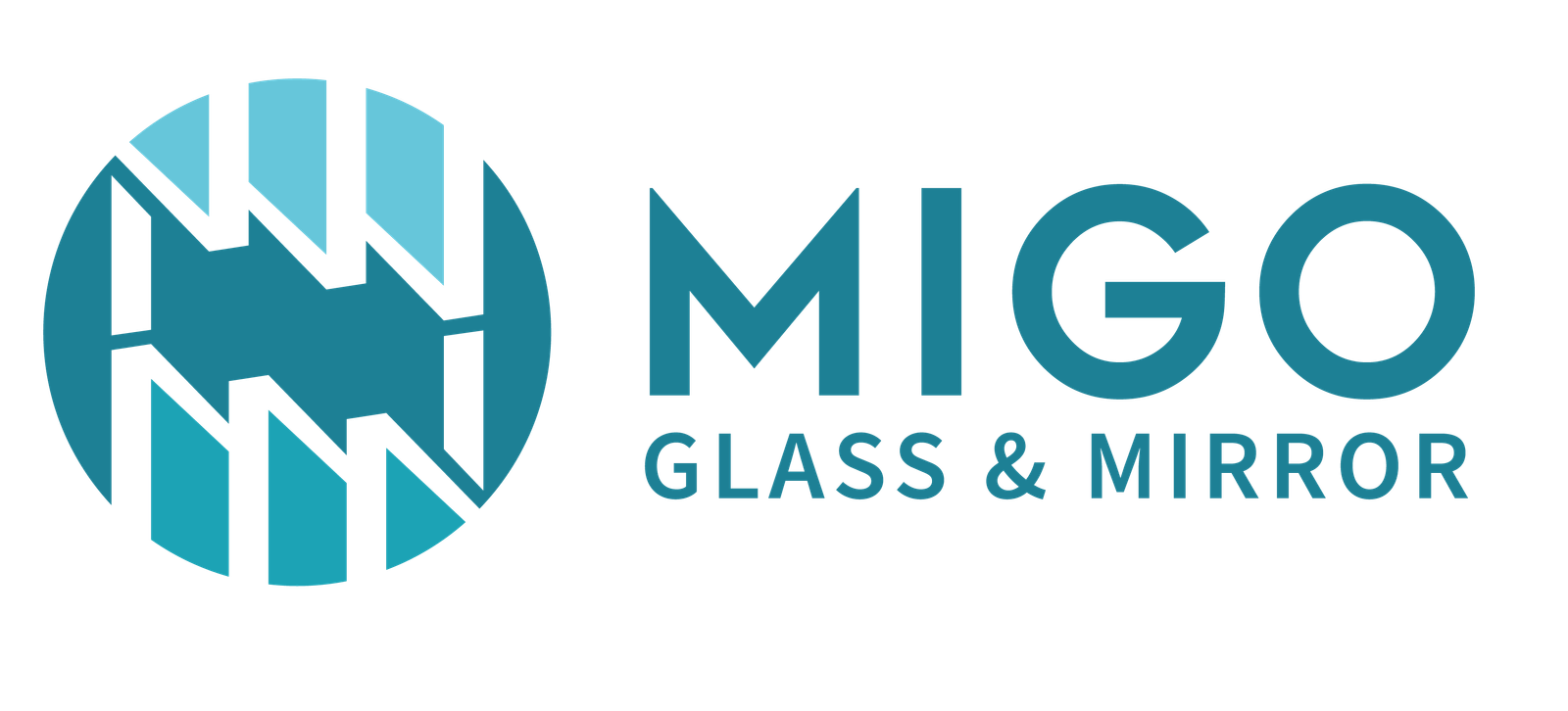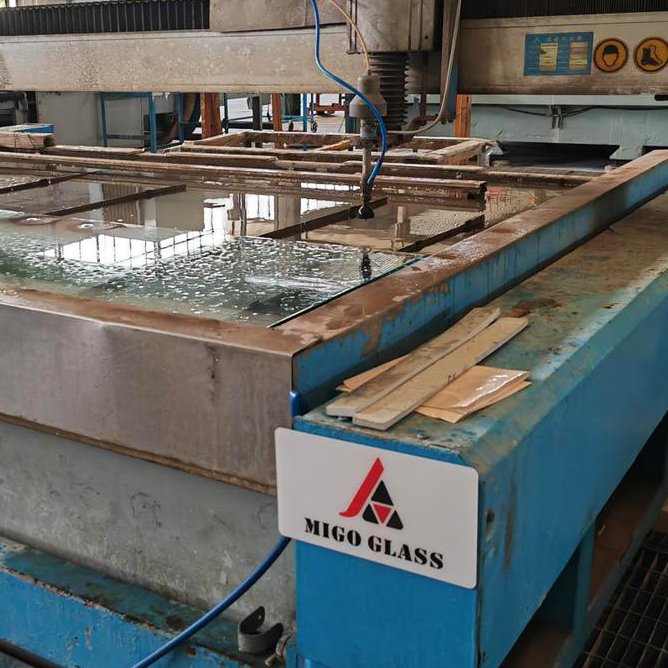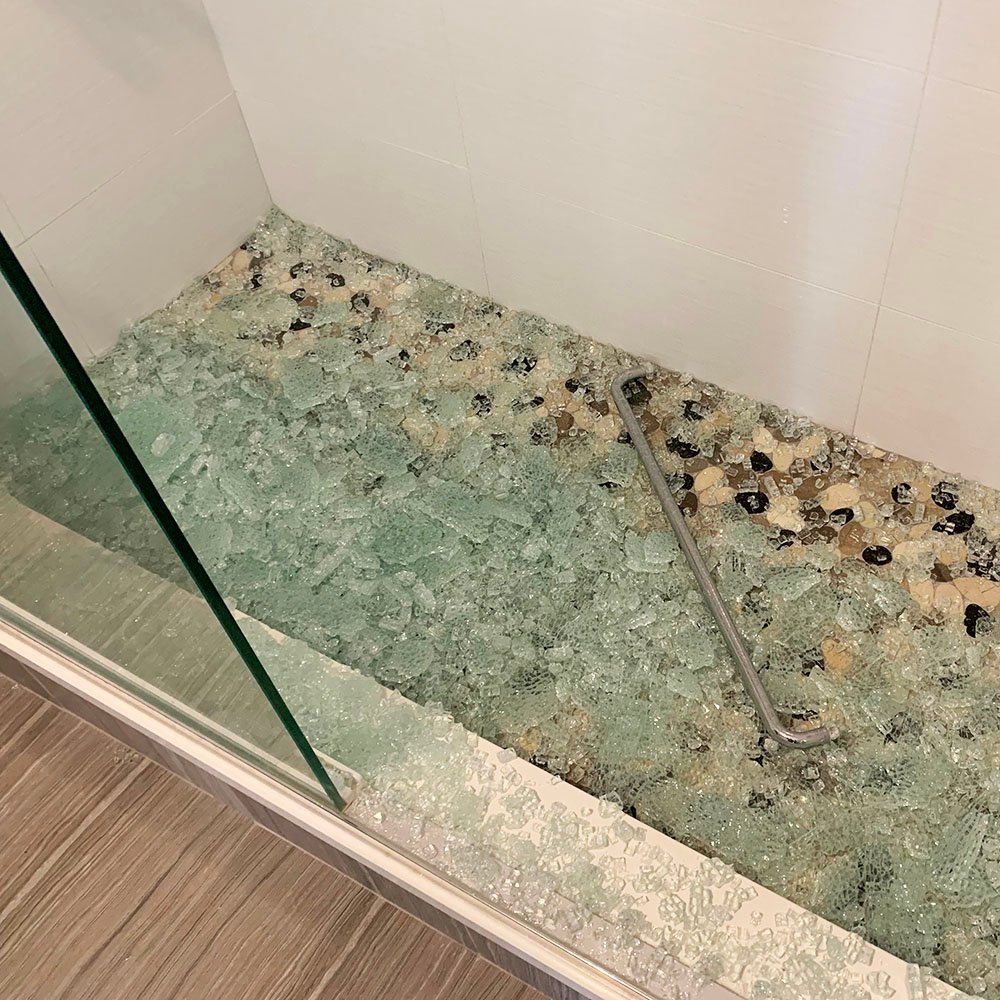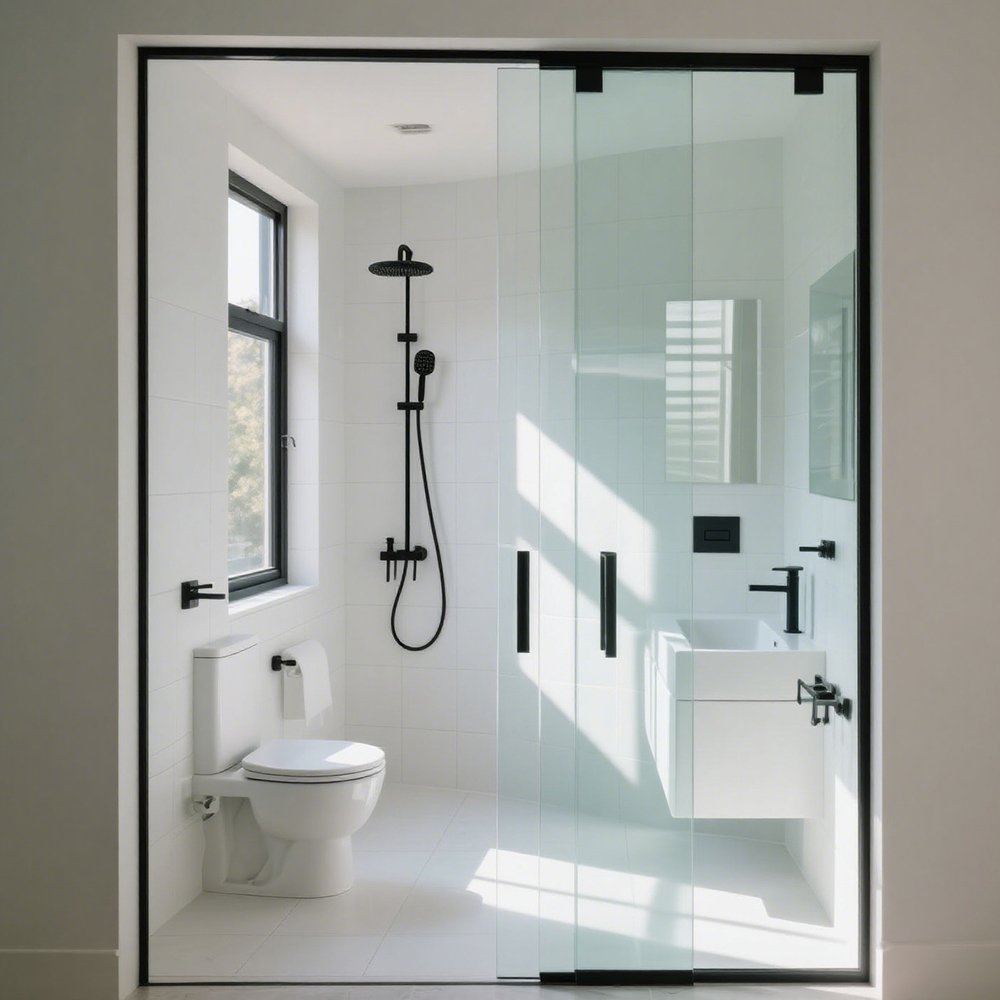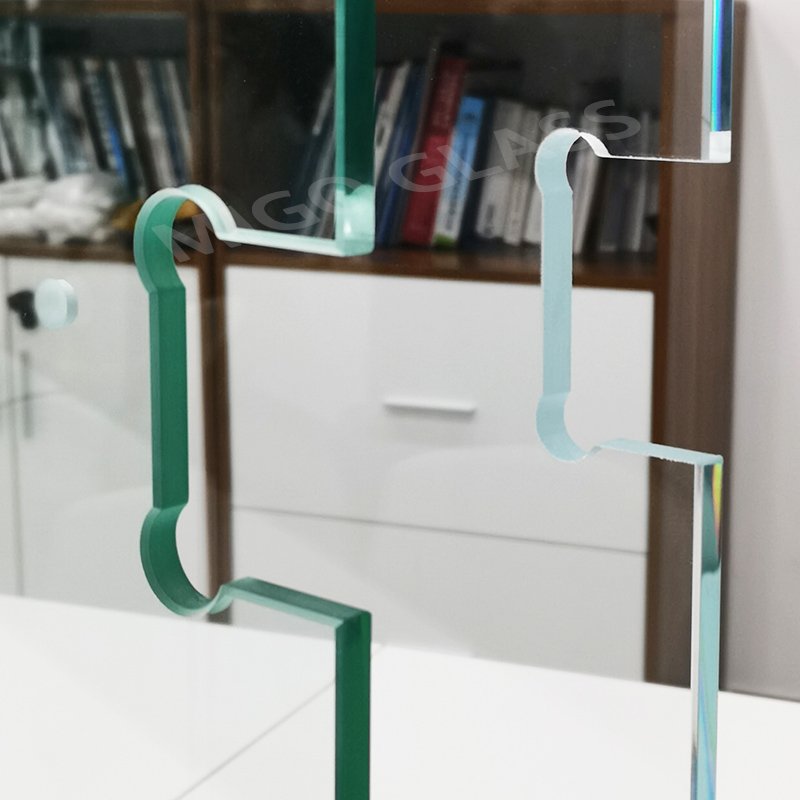Patterned glass panel, alternatively referred to as textured or pattern glass, possesses a raised or textured surface. Patterned glass panels are commonly utilized in doors, windows, and cabinets to enhance privacy and introduce decorative allure. Patterned glass panel enhances any space, providing privacy and style. It allows light to flow while providing privacy, making it ideal for bathrooms and partitions.
As the leading shower glass manufacturer and supplier, MIGO Glass offers a variety of textures and designs, patterned glass complements any decor. In this blog, let us delve into the definition, advantages, disadvantages and main considerations when choosing the right patterned glass panel. We think it will be helpful to you.
1. What Is Patterned Glass Panel?
Patterned glass panels, or textured or pattern glass, are created through various techniques like engraving, etching, sandblasting, or chemical treatments. These methods result in a diverse range of textures and patterns that offer varying degrees of privacy and light diffusion. Patterned glass panels can be made from different types of glass like frosted, ribbed, reeded, seeded, rain, and textured stained glass.
These panels are highly valued for their ability to provide privacy while still allowing natural light to pass through. They find common applications in windows, doors, partitions, shower enclosures, and decorative uses. The cost of patterned glass varies based on factors such as texture type, size, thickness, manufacturer, and market demand. Generally, patterned glass tends to be more expensive than clear glass due to the additional manufacturing processes involved.
Patterned glass offers several advantages, including the ability to create different levels of privacy, conceal imperfections, enhance safety and security when made with tempered or laminated glass, provide sound insulation, and offer UV protection. It can be customized to meet specific design requirements, and manufacturers can produce them in bulk or with unique patterns provided by clients.
Various suppliers offer a wide range of patterned glass options, including custom cut-to-size panels for shower doors, windows, or front doors. These panels not only add style and privacy to spaces but also come in a variety of designs that offer both aesthetic charm and functional benefits. Manufacturers like MIGO Glass, for instance, provide an extensive selection of patterned glass with different patterns to cater to diverse interior design needs.
2. What are the main types of patterned glass and their applications?
There are several main types of patterned glass panels available for various applications at MIGO Shower Glass:
2.1 Moru Glass Panel
Moru glass, also known as fluted glass or reeded glass, is a kind of decorative translucent glass with embossed patterns on one surface. True to its name, moru glass panel has a surface composed of multiple grooves and ridges, creating a vertical geometric pattern that scatters light as it passes through the glass. This characteristic allows moru glass panel to address the need for privacy while preserving a light and airy feel in interior spaces, making it perfect for rooms where both spaciousness and privacy are desired.
Applications: Moru glass is widely used in interior decoration, sliding glass door dividers, glass partitions, glass screens, wardrobe doors, and cabinet doors.
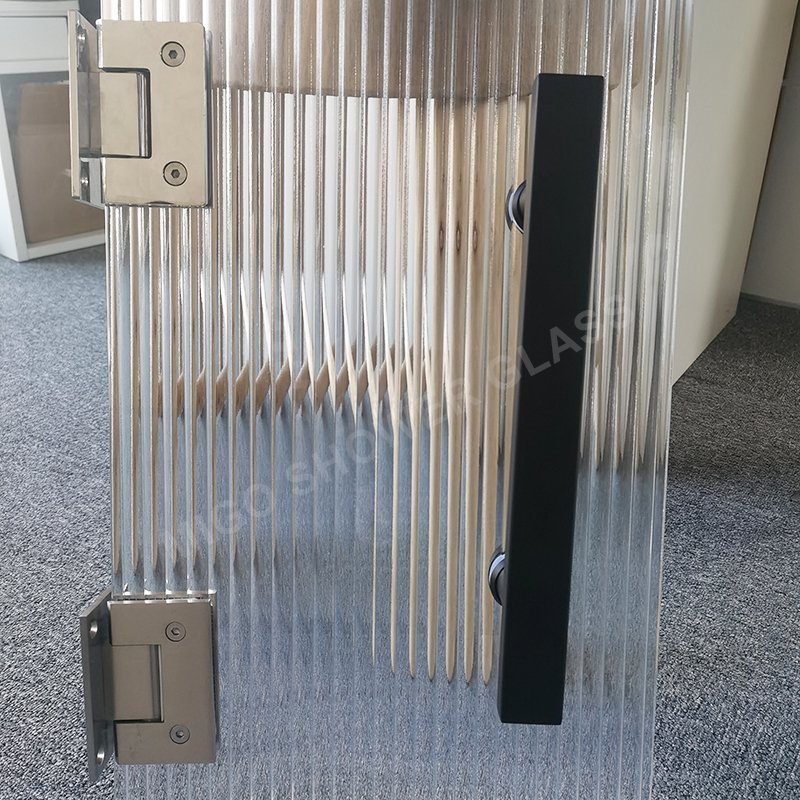
2.2 Nashiji glass panel
Nashiji glass panel is created by applying a layer of molten glass to a surface and then rolling it with a textured roller or pressing it with a patterned plate. This process creates a bumpy, textured surface that resembles the skin of a pear. The glass is then cooled and cut into various shapes and sizes for use in decorative applications.
Applications: Nashiji glass panel can be used as a decorative element in windows, doors, partitions, and furniture. The textured surface of the glass diffuses light, creating a unique visual effect and adding depth and interest to a space.
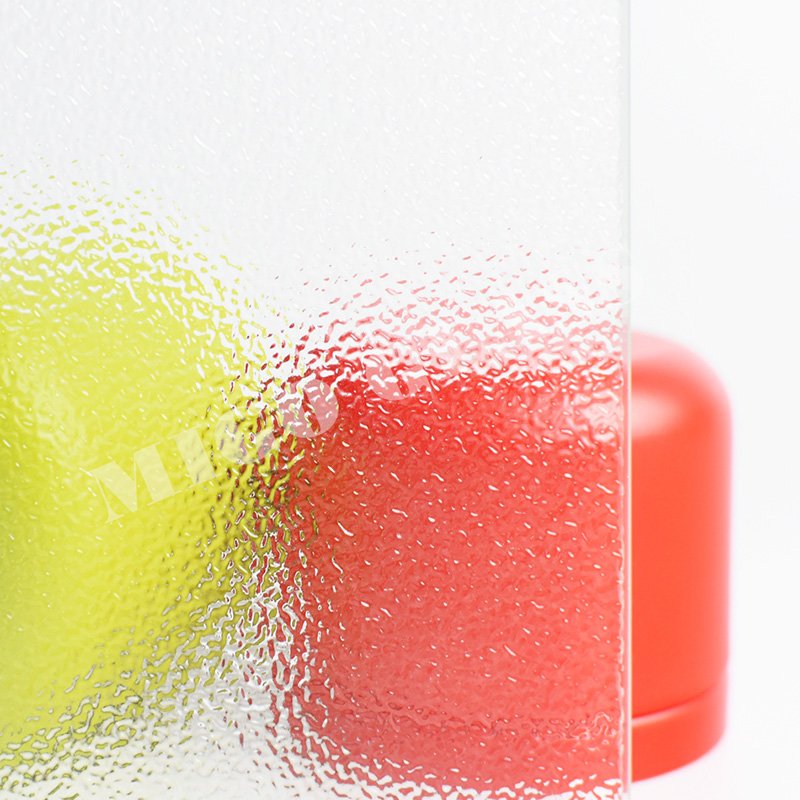
2.3 Frosted patterned glass panel
The frosted glass panel is a widely used option that provides a uniformly diffused light which is ideal for maintaining privacy without completely blocking out natural light.
Applications: Frosted glass panel is a popular choice for bathroom windows and office partitions to create a sense of seclusion while maintaining a bright and airy feel.
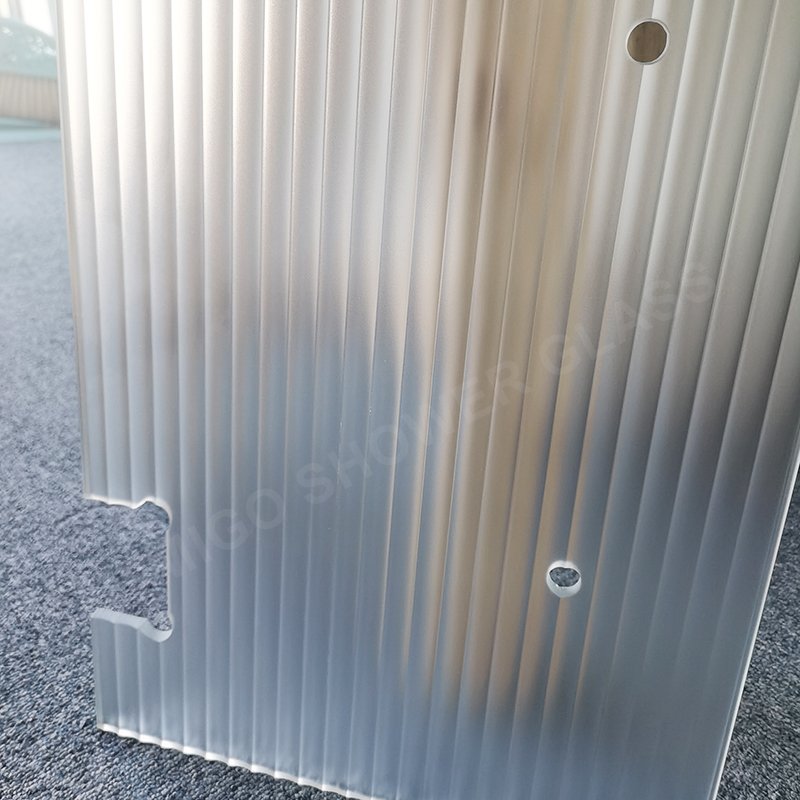
2.4 Rain glass panel
Rain glass panel also known as rain glass or raindrop glass, is characterized by its textured surface that resembles raindrops running down a windowpane. This distinctive pattern is achieved by rolling the hot glass sheet between two textured rollers, creating a subtle and organic design that adds depth and visual appeal to the glass.One of the primary advantages of rain pattern glass is its ability to provide privacy while still allowing natural light to pass through. The textured surface diffuses light, obscuring the view from the outside while maintaining a bright and airy atmosphere inside.
Applications: This makes it an ideal choice for areas where privacy is desired, such as bathrooms, shower enclosures, and office partitions.
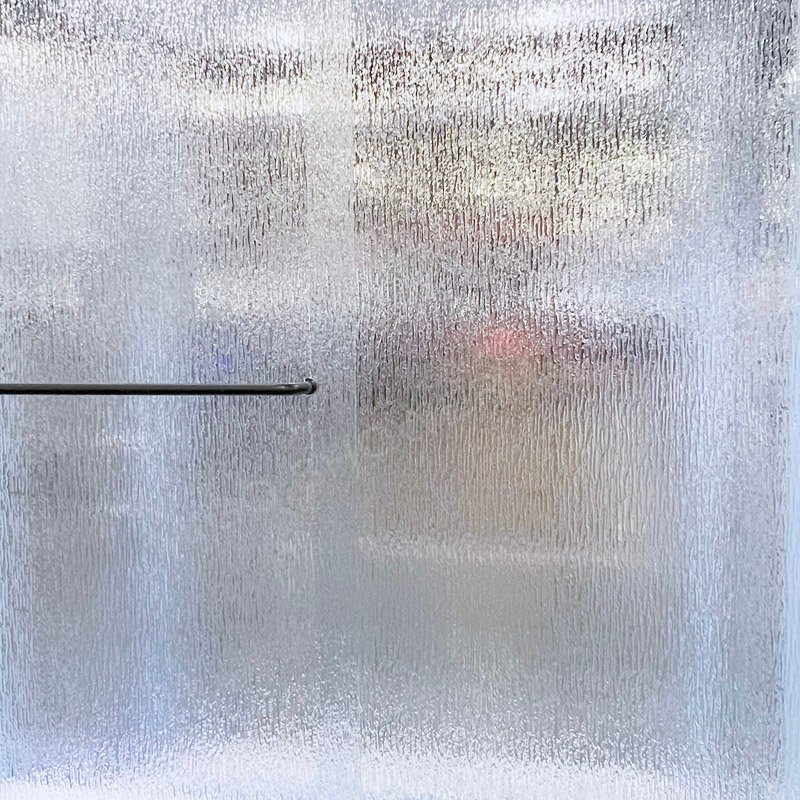
2.5 Wired Patterned Glass Panel
Wired glass panel is also known as Georgian wired glass, was invented by Frank Schuman. During the manufacturing process, the steel mesh is placed in the glass. The wire mesh acts as reinforcement. If the glass breaks on impact, the glass shards are held in place by steel wires.
Applications: Wired glass panels can break through impact, but the fragments of glass stick to the wire mesh and hence help in preventing a burglary or a theft.Due to wire mesh present in the glass, wired glass blocks fire and some to enter the building for some time. This provides people sufficient time to escape from the building and thus it helps in preventing life damage in case of fire emergencies.
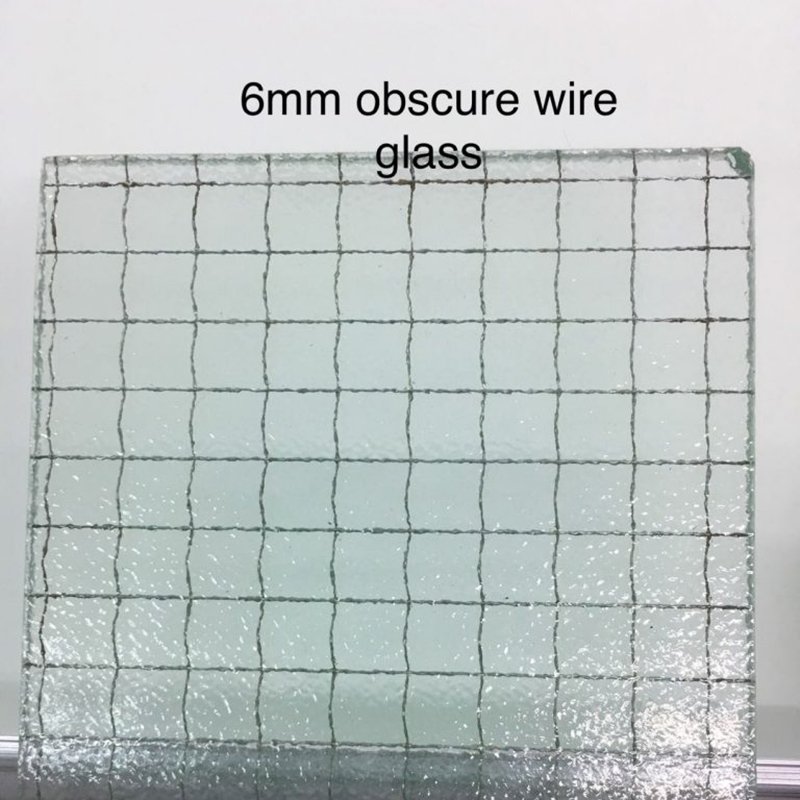
3. What are the advantages of patterned glass panels?
Patterned glass panels offer several advantages that make them a preferred choice for many applications:
3.1 Enhanced Privacy
With their ability to diffuse light and obscure views, patterned glass panels provide varying levels of privacy, making them ideal for areas where seclusion is desired without compromising natural light.
3.2 Aesthetic Appeal
The textured surface of patterned glass panel adds a decorative element to interior spaces. With a wide range of patterns and designs available, they can enhance the overall aesthetics and visual interest of a room.
3.3 Light Diffusion
Despite providing privacy, patterned glass panels still allow light to pass through. This feature helps to maintain a bright and open ambiance in rooms, creating a welcoming and well-lit environment.
3.4 Durability
Certain types of patterned glass, such as tempered or laminated glass, offer enhanced durability compared to regular glass. Tempered glass is more resistant to breakage and shatters into small, relatively harmless pieces when it does break. Laminated glass, on the other hand, holds together when shattered, providing an added level of safety and security.
3.5 Safety and Security
The durability of patterned glass panels contributes to their safety and security benefits. Tempered glass or laminated glass can act as a deterrent against forced entry, providing an extra layer of protection for homes or commercial spaces.
3.6 Versatility
Patterned glass panels can be used in a wide range of applications, including windows, doors, partitions, shower enclosures, and decorative features. Their versatility allows for seamless integration into various architectural and design projects.
3.7 Customization
Patterned glass panels can be customized with different patterns and textures to meet specific design requirements. This customization option allows for a personalized touch, ensuring that the glass panels align with the overall design vision. MIGO glass offers shower glass services for global brands.
These advantages collectively make patterned glass panels a popular choice for both residential and commercial settings, offering practical benefits while enhancing the visual appeal of the space.
4. How to choose the right patterned glass panel?
Choosing the right patterned glass panel involves considering several factors to ensure it meets your aesthetic and functional needs. Here are some steps and considerations to help you make the right choice:
4.1 Determine The Purpose and Functionality
Identify why you need the patterned glass. Is it for privacy, decorative purposes, light diffusion, or safety and security?
Consider the Level of Privacy: Different patterns offer varying degrees of privacy. Decide how much visibility you want to restrict and select a pattern that provides the appropriate level of obscuration. Some patterns obscure more visibility than others.
Light Transmission: Consider how much natural light you want to allow into the space. Some patterns diffuse light, affecting the ambiance of the room. while others may block it more.
Safety: If safety is a concern, consider patterned glass that is tempered or laminated, as these types offer enhanced safety and security features.
4.2 Pattern Design
Aesthetic Compatibility: Choose a pattern that complements the existing design and décor of the space where it will be installed.
Texture: Decide if you prefer a smooth or textured finish. Textured glass can add depth and character.
Color: Some patterned glass comes in different colors. Ensure the color matches or enhances your space.
4.3 Durability and Maintenance
Look for patterns that are easy to clean and maintain, especially if the glass will be used in high-traffic or high-wear areas. Some patterns may be easier to clean than others. Consider how often the glass will need to be cleaned and how easy it will be to maintain.
4.4. Location
Interior vs. Exterior: Consider whether the glass will be used inside or outside. Exterior glass needs to be more durable and weather-resistant.
Application: Think about where the glass will be installed, such as doors, windows, partitions, or shower enclosures.
4.5 Budget
Set a budget and look for options within that range. Patterned glass can vary significantly in price based on the design and quality.
4.6 Customization Options
If you have a specific design in mind, check if the supplier offers customization options to create a unique pattern that fits your vision.
4.7 Supplier and Quality
Research different suppliers and manufacturers to find one that offers high-quality products and good customer service. Read reviews and ask for recommendations.
4.8 Samples and Testing
Samples: Request samples to see how the glass looks in your space. View it in different lighting conditions.
Testing: If possible, test the glass in the actual location to assess privacy, light transmission, and overall appearance.
5. Conclusion
Patterned glass offers advantages like privacy, concealing imperfections, enhanced safety and security (when made with tempered or laminated glass), sound insulation, and UV protection. It can be customized to meet specific design requirements.
Manufacturers offer a wide range of options, including custom cut-to-size panels, to enhance style and privacy while providing aesthetic charm and functional benefits.
Patterned glass panels have various types with distinct purposes such as Moru Glass, Nashiji Glass, Frosted Glass, Rain Glass, Wired Glass. Each type caters to specific design and functional needs, providing unique characteristics and applications.
Choosing the perfect patterned glass panel that aligns with your functional requirements and aesthetic preferences, it is essential to consider these factors. By weighing these aspects, you can confidently select a patterned glass panel that not only meets your functional needs but also adds personality, privacy, and visual intrigue to your space. MIGO Glass specializes in manufacturing and deep processing various types of shower glass in custom thickness and size at competitive factory prices. When selecting the right patterned glass panel, MIGO Glass is your reliable supplier.
Any questions, please let us know.
